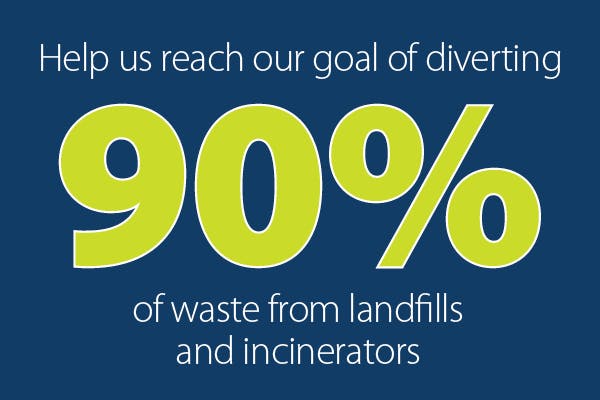Share your ideas for a zero-waste future
The Zero Waste Plan
The Hennepin County Zero Waste Plan (PDF) is now available.
Hennepin County is committed to achieving a zero-waste future where all materials are designed to become resources for others to use, the volume and toxicity of waste and materials is systematically eliminated, and all resources are conserved and recovered and not burned or buried.
The county has defined zero waste as preventing 90% or more of all discarded materials from being landfilled or incinerated. The actions in the Hennepin County Zero Waste Plan are designed to collectively move the county as close as possible to the goal of zero waste.
The Zero Waste Plan
The Hennepin County Zero Waste Plan (PDF) is now available.
Hennepin County is committed to achieving a zero-waste future where all materials are designed to become resources for others to use, the volume and toxicity of waste and materials is systematically eliminated, and all resources are conserved and recovered and not burned or buried.
The county has defined zero waste as preventing 90% or more of all discarded materials from being landfilled or incinerated. The actions in the Hennepin County Zero Waste Plan are designed to collectively move the county as close as possible to the goal of zero waste.
-
Zero-waste plan community engagement partners
Eighteen community groups have been selected to receive funding to support community engagement with the county’s plan to reach a zero-waste future. These groups will be responsible for providing input on engagement plans for their communities, hosting engagement sessions, and communicating updates to their members on the process and feedback opportunities. As a cohort, these groups will work together to gain a broader understanding of the solid waste system, develop community-identified solutions, and define themes for use in the subsequent plan development phase.
Action to Equity
Audubon Neighborhood Association
Center for Hmong Arts and Talent
Climate Generation/Youth Environmental Activists of Minnesota (YEA! MN)
Community Power
Congregations Caring for Creation
Eastside Neighborhood Services
Ebenezer Oromo Evangelical Church
Encouraging Leaders
Lao Assistance Center of Minnesota
Little Earth Protectors
McKinley Community
MN Renewable Now
NoMi Roots
Off The Blue Couch
Somali American Women Action Center
Resilient Cities and Communities with Inquilinxs Unidxs por Justicia
Thai Cultural Council of Minnesota
-
Consultants hired to lead the development of the county’s Zero Waste Plan
Hennepin County recently hired two consultants that will work collaboratively with county staff to develop a plan to reach a zero-waste future.
Reviewing the solid waste system
Resource Recycling Systems (RSS) was hired as the solid waste consultant and will be responsible for:
- Analyzing the county’s existing solid waste system and identifying gaps
- Reviewing the solid waste systems of leading zero-waste communities
- Coordinating work groups comprised of industry stakeholders and community members to develop strategies and assess their costs and social, environmental and climate impacts
RRS is a sustainability and resource management consulting firm that specializes in solid waste assessments, facility auditing, closed loop system design and optimization, zero waste program implementation, policy, communications and outreach, and financial and data analysis modeling.
Facilitating community engagement
Antonia Maria Apolinário-Wilcoxon, Ed.D. of Equity Strategies, LLC was hired to facilitate the plan’s broad community engagement process with a strong focus on equity and disparity reduction.
During the plan development, the county needs to listen and respond to concerns about our solid waste system, facilities such as transfer stations and the Hennepin Energy Recovery Center, and our waste reduction programs to find paths forward to realize a zero-waste future.
The facilitator will provide transparency and neutrality in the discussions and analysis of feedback to ensure public trust in the Zero Waste Plan development process. The facilitator will also coordinate a cohort of 18 community groups that will be focused on engaging residents who have traditionally been left out of solid waste planning processes and are potentially more burdened by the current solid waste system.
Dr. Apolinário-Wilcoxon provides direction and leadership in efforts of private, public, and collaborative efforts working to improve the lives of disenfranchised and vulnerable persons impacted by inequities. An African-Brazilian, she obtained her doctorate degree in educational leadership and brings experiences in education, corporate, nonprofits, and government to lead efforts that bring agency, voice and liberation in spaces where the presence of oppression, bias and other barriers silence those most valuable voices to find solutions to problems in their world.
About the Zero Waste Plan
Hennepin County’s zero-waste vision is a system where all materials are designed to become resources for others to use. This system would avoid and eliminate the volume and toxicity of waste and materials, conserve and recover all resources, and not burn or bury them. The key performance measure is diverting 90% or more of all discarded materials from landfills and incinerators.
The Zero Waste Plan will complement the county’s newly adopted Climate Action Plan and provide the foundation for the county’s 2024 Solid Waste Management Master Plan. A draft of the Zero Waste Plan will be presented to the county board in November 2022.
-
Partnering with community groups to conduct community engagement on reducing trash and recycling more
The county is looking to partner with 10 to 15 groups with long-standing relationships with under-represented communities in Hennepin County to conduct engagement as part of the plan development.
Priority audiences
The county is particularly interested in engaging with residents who have traditionally been left out of trash and solid waste planning processes and are potentially more burdened by the current solid waste system, including Black, Indigenous and other people of color (BIPOC) as well as low-income families and residents with disabilities.
The county also identifies youth as an important audience to engage because they will experience the long-term environmental, health and financial impacts of the materials we use and how we discard those items.
What the groups will do
Contracted community groups will host meetings and conduct outreach to understand the barriers and benefits to reducing trash and recycling more. These insights will be gained through creative engagement activities that are meaningful and tailored to the community.
The community groups will also form a cohort to share their learnings, develop a broader understanding, offer community-identified solutions, and review and comment on the draft plan.
Quick Polls
Follow Project
Who's Listening
-
Zero Waste Community Group Cohort Project Lead
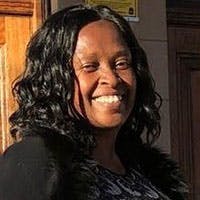
-
Environmental Engagement Coordinator
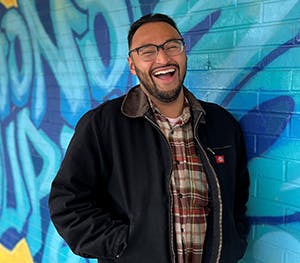
Email joseph.vital@hennepin.us -
Zero Waste Program Specialist
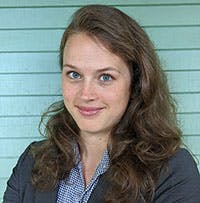
Email amy.maas@hennepin.us -
Waste Prevention and Recycling Specialist
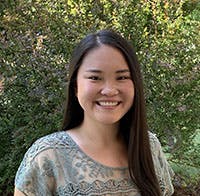
Timeline
-
August 2021
Share your ideas for a zero-waste future has finished this stageBoard resolution to develop plan to map a zero-waste future
-
December 2021
Share your ideas for a zero-waste future has finished this stageSolicit proposals for consultants and community groups to conduct engagement
-
January 2022
Share your ideas for a zero-waste future has finished this stage- Select and announce facilitation and solid waste consultants
Select and form community engagement cohort
-
February 2022
Share your ideas for a zero-waste future has finished this stage- Begin research and comparative analysis of Hennepin's waste system
Refine engagement process and develop outreach tools
Share the Zero Waste Plan process and opportunities for providing input
-
March and April 2022
Share your ideas for a zero-waste future has finished this stage- Community engagement led by community groups
Broad outreach to engage residents
Discussions with industry stakeholders
-
May 2022
Share your ideas for a zero-waste future has finished this stageSynthesize findings from engagement efforts and review and develop themes
-
June to August 2022
Share your ideas for a zero-waste future has finished this stageForm zero-waste work groups to develop and vet strategies based on themes identified in the initial engagement efforts
-
August and September 2022
Share your ideas for a zero-waste future has finished this stageResource Recycling Solutions develops recommended strategies for the Zero Waste Plan
-
September and October 2022
Share your ideas for a zero-waste future has finished this stageMeet with community engagement cohort to consider and evaluate recommended actions
-
2023
Share your ideas for a zero-waste future is currently at this stageGather final feedback on the draft strategies for the Zero Waste Plan
Finalize Zero Waste Plan and submit to county commissioners
Use key parts of the Zero Waste Plan as the foundation for the development of the state-mandated Hennepin County 2024 Solid Waste Management Plan

